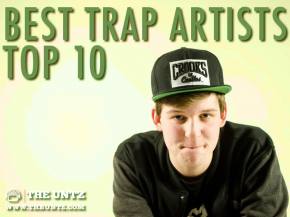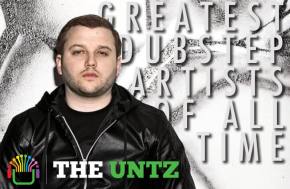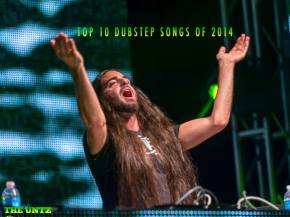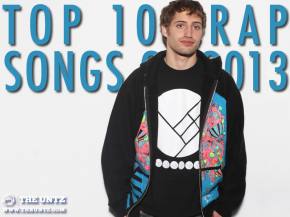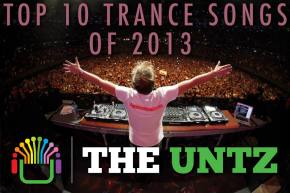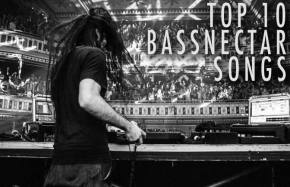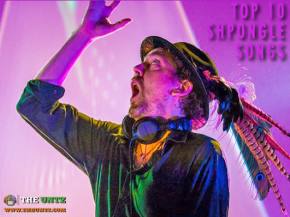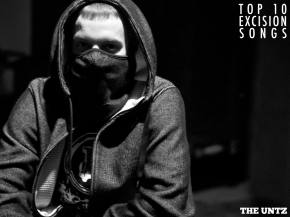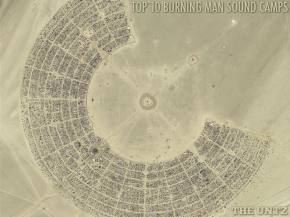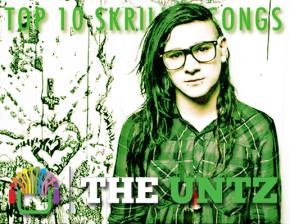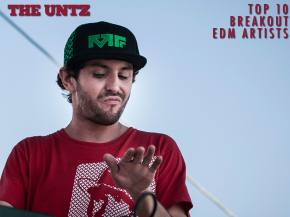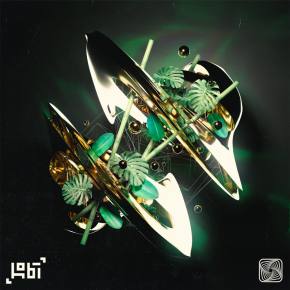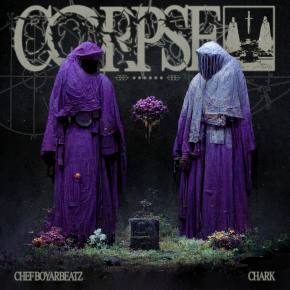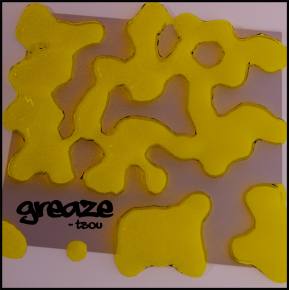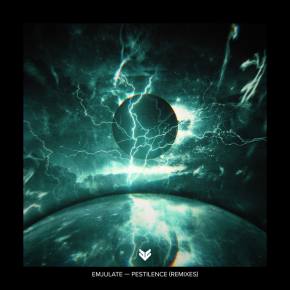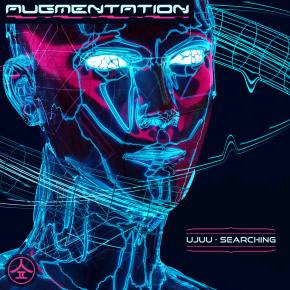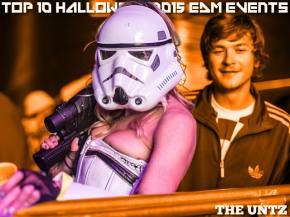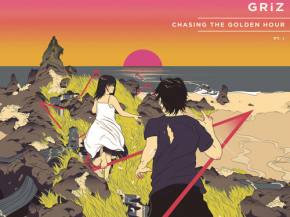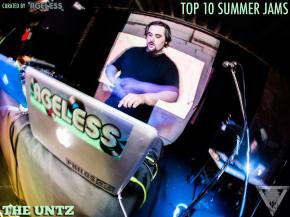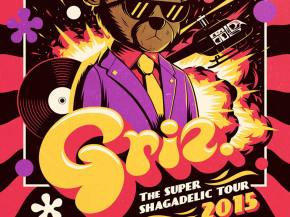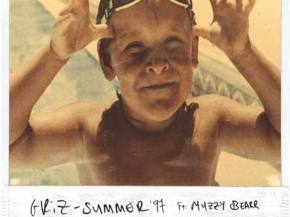Published: November 30, -0001
By: Natty Morrison
Photos: ACovaPhotography & Nicki Lamson
At only 19 years old, Dan Hacker, aka MuzzY, has been quietly making a name for himself in the Michigan electronic scene. Thanks to guest spots with rising stars like GRiZ, Freddy Todd, and Jaws that Bite, Hacker is beginning to land opening spots for plenty of jam bands and electronic acts coming through the East Lansing and Detroit area. Originally trained as a jazz guitarist, Hacker recently decided to withdraw from college and pursue music full-time. I sat down with Dan to discuss what it’s like to be the newcomer, how music theory knowledge translates into DJ prowess, and what it would be like if Marty McFly listened to hip hop.
Natty Morrison: First question. Do you miss school?
Dan Hacker: [Laughs] I get asked that question a lot, and I think that leaving school to pursue my work as MuzzY, but I look forward to going back to finish sometime soon.
NM: How did this all start?
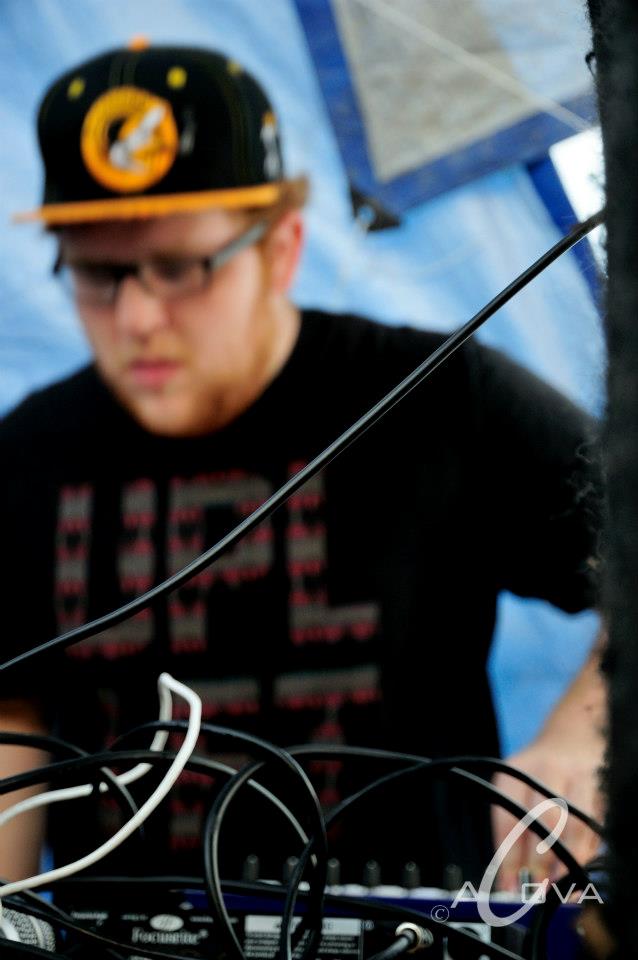 DH: Well, I’ve been playing guitar for twelve years now, and I randomly stumbled upon Grant Kwiecinski [GRiZ] at an overnight camp we worked at together. I saw him do him do his thing at the all-staff talent show, and I thought, “Wow, that’s insane, electronic music that I actually like.” So I worked with him when we got out to Michigan State together, and it turned into me playing guitar full time with him. And through that I found out that I really just wanted to produce electronic music,
DH: Well, I’ve been playing guitar for twelve years now, and I randomly stumbled upon Grant Kwiecinski [GRiZ] at an overnight camp we worked at together. I saw him do him do his thing at the all-staff talent show, and I thought, “Wow, that’s insane, electronic music that I actually like.” So I worked with him when we got out to Michigan State together, and it turned into me playing guitar full time with him. And through that I found out that I really just wanted to produce electronic music,
NM: So he showed you the in’s and out’s?
DH: When I started he just kind of told me what to do, like what programs to get, and then he showed me the first couple songs I made, “This is warping an audio clip…this is making a drum rack…this is making a beat.” He was always there to give me pointers and stuff, but I like to think I did a lot of it on my own.
NM: You said you’ve been playing guitar for twelve years. When you were younger did you always envision yourself as a musician?
DH: Yeah, you know I started playing when I was probably 8 or 9 years old, and it wasn’t until right when I finished middle school that I took it really seriously. I had already been a part of the music program, like symphony, band, and jazz band, but when I got to high school I had pretty much committed to that being my thing. I guess music has always been the goal but electronic music is now the means by which I achieve it.
NM: Now that you’ve abandoned guitar as your instrument of choice for electronic music, do you think that younger Dan would be shocked by older Dan’s current place?
DH: I think that younger Dan would have been not surprised to find out older Dan was making hip-hop beats. I was listening to J Dilla when I was twelve years old, and I was always into hip-hop, but from a musical standpoint, more so than just, “Oh these guys are saying swear words.” But yeah, I guess younger Dan would have slapped older Dan in the face saying, “You should get your guitar back on track!”
NM: Do you think there’s still a way for you to be a guitar playing without having it define you? I mean you can be a musician and not be instrument specific…
DH: Right, exactly, and that’s the beauty of being a producer right now is I have this open-ended thing with which I can do whatever I please, which is Ableton. If I want to add guitar into a song, I do. I definitely feel that for this new album I’m trying to finish in the next couple months is more guitar oriented type stuff.
NM: Do you want to talk about the new album?
DH: [Pause] Um…not yet. [Laughs]
NM: You’re obviously pretty young in the game; do you see obstacles from being a newcomer? Has it been discouraging at all?
DH: I don’t think it’s been discouraging, I think it’s been encouraging, because I have a lot of people around me that are very influential and very supportive of everything I do. Sometimes being the rookie and the new guy on the block presents some sort of stumbling blocks, like approaching a more experienced artist, or someone I haven’t had a chance to meet yet…business things. There’s still a lot more I have to learn when it comes to producing, DJing, and performing, but I feel me being the young guy I can take advantage of the fact that I know I need to learn all these things.
NM: That’s funny, my next question was going to be if you see any advantages from having to watch from the sidelines; of getting to observe the musical process without being inside the musical process, per say.
DH: In terms of the future, I’ll be able to accomplish more when I’m younger. So when I’m older I can be making bigger moves, which is everyone’s desire when they’re starting out. Another advantage of that is when I go see a show of someone I really respect and really look up to, I’m standing there watching. Watching everything they’re doing, listening for every sound, every layer of the track as much as I can and seeing how the audience reacts to that. And for me to be able to absorb that from kind of this fresh look at it, because I haven’t seen a lot of these artists. Like someone like RJD2 tonight [note: this interview took place prior to RJD2’s set on Saturday evening], I have never seen him but he’s one of my heroes, and when I see him tonight I’m just going to be watching and absorbing everything that guy’s doing.
NM: Have you played a lot of live sets at this point?
DH: Luckily, I was introduced to a lot of people in my early days working with Grant, and through that I got to be able to put on a lot of shows and a lot of house parties in the East Lansing and Detroit area. I’m slowly breaking out and I’ve played at a couple other states, and I’m starting to get these better opening spots. I’m opening up for The Werks soon, and Love and Light, and those are two artists I really look up to. It was kind of a gift given to me, so I need to really work on my end to not disappoint anybody.
NM: What, as an artist, is more important to you, personal production or playing to other people?
DH: At this point, it’s kind of both. I work really hard in the studio…like, a lot. I mean, I work a 40 hour-a-week job making coffee, and when I’m not there I’m in the studio making music, or hanging out with my friends trying to figure out what the next show I’m going to play is. It’s weird, because I really want to share music with other people, so playing live is a really good way to do that.
NM: Do you think it’s possible for an artist to excel, without really excelling in the live setting?
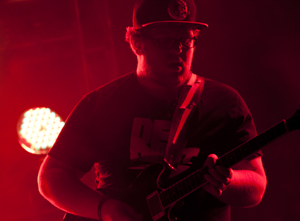 DH: That just depends on how good of a job you do getting your music out there. Either through the internet, or word of mouth…
DH: That just depends on how good of a job you do getting your music out there. Either through the internet, or word of mouth…
NM: But word of mouth, a lot of times, comes from seeing someone live.
DH: Exactly, and that’s why playing live is different, because they have that experience with you. When people come see me, I want them to have an experience. A really good one, at that. But, for me, that stems from how much work I put into the studio.
NM: Describe your sound, without using any musical terminology.
DH: If Marty McFly went back to the 1930s and brought with him hip-hop music, and at the same time, Bob Moog went back in time in the same DeLorean and introduced hip-hop music synthesis, while J Dilla was sitting at the Enchantment Under the Sea Dance.
NM: “This is your cousin…Marvin Dilla!”
[All laugh]
NM: To wrap things up, how is being an electronic artist, or a DJ different from being a musician.
DH: It’s really interesting, because I come from a musical background, I’m able to see them as two different things. Being a DJ and being a guitarist are separate, because it’s like the difference between being a conductor versus being a member of the orchestra. When you’re DJing, you’re responsible for the energy of the entire building. When you’re a guitar player, it depends; you’re a part of something else.
NM: You’re 19; you’ve dropped out of school…what about being an artist is so important to you?
DH: There’s something to be said about what music can do to someone, and how music can affect the emotions of someone listening. And, that feeling, and because of being one of the ones that make that feeling, and because of my musical background…I feel like it’s almost my duty, to do so. Not to sound cocky, or anything, but I feel like music is a gift. And I feel like all I want to do in my life is share that gift. [Long pause] I just don’t want the music to die.
Photos: ACovaPhotography & Nicki Lamson
At only 19 years old, Dan Hacker, aka MuzzY, has been quietly making a name for himself in the Michigan electronic scene. Thanks to guest spots with rising stars like GRiZ, Freddy Todd, and Jaws that Bite, Hacker is beginning to land opening spots for plenty of jam bands and electronic acts coming through the East Lansing and Detroit area. Originally trained as a jazz guitarist, Hacker recently decided to withdraw from college and pursue music full-time. I sat down with Dan to discuss what it’s like to be the newcomer, how music theory knowledge translates into DJ prowess, and what it would be like if Marty McFly listened to hip hop.
Natty Morrison: First question. Do you miss school?
Dan Hacker: [Laughs] I get asked that question a lot, and I think that leaving school to pursue my work as MuzzY, but I look forward to going back to finish sometime soon.
NM: How did this all start?
 DH: Well, I’ve been playing guitar for twelve years now, and I randomly stumbled upon Grant Kwiecinski [GRiZ] at an overnight camp we worked at together. I saw him do him do his thing at the all-staff talent show, and I thought, “Wow, that’s insane, electronic music that I actually like.” So I worked with him when we got out to Michigan State together, and it turned into me playing guitar full time with him. And through that I found out that I really just wanted to produce electronic music,
DH: Well, I’ve been playing guitar for twelve years now, and I randomly stumbled upon Grant Kwiecinski [GRiZ] at an overnight camp we worked at together. I saw him do him do his thing at the all-staff talent show, and I thought, “Wow, that’s insane, electronic music that I actually like.” So I worked with him when we got out to Michigan State together, and it turned into me playing guitar full time with him. And through that I found out that I really just wanted to produce electronic music,NM: So he showed you the in’s and out’s?
DH: When I started he just kind of told me what to do, like what programs to get, and then he showed me the first couple songs I made, “This is warping an audio clip…this is making a drum rack…this is making a beat.” He was always there to give me pointers and stuff, but I like to think I did a lot of it on my own.
NM: You said you’ve been playing guitar for twelve years. When you were younger did you always envision yourself as a musician?
DH: Yeah, you know I started playing when I was probably 8 or 9 years old, and it wasn’t until right when I finished middle school that I took it really seriously. I had already been a part of the music program, like symphony, band, and jazz band, but when I got to high school I had pretty much committed to that being my thing. I guess music has always been the goal but electronic music is now the means by which I achieve it.
NM: Now that you’ve abandoned guitar as your instrument of choice for electronic music, do you think that younger Dan would be shocked by older Dan’s current place?
DH: I think that younger Dan would have been not surprised to find out older Dan was making hip-hop beats. I was listening to J Dilla when I was twelve years old, and I was always into hip-hop, but from a musical standpoint, more so than just, “Oh these guys are saying swear words.” But yeah, I guess younger Dan would have slapped older Dan in the face saying, “You should get your guitar back on track!”
NM: Do you think there’s still a way for you to be a guitar playing without having it define you? I mean you can be a musician and not be instrument specific…
DH: Right, exactly, and that’s the beauty of being a producer right now is I have this open-ended thing with which I can do whatever I please, which is Ableton. If I want to add guitar into a song, I do. I definitely feel that for this new album I’m trying to finish in the next couple months is more guitar oriented type stuff.
NM: Do you want to talk about the new album?
DH: [Pause] Um…not yet. [Laughs]
NM: You’re obviously pretty young in the game; do you see obstacles from being a newcomer? Has it been discouraging at all?
DH: I don’t think it’s been discouraging, I think it’s been encouraging, because I have a lot of people around me that are very influential and very supportive of everything I do. Sometimes being the rookie and the new guy on the block presents some sort of stumbling blocks, like approaching a more experienced artist, or someone I haven’t had a chance to meet yet…business things. There’s still a lot more I have to learn when it comes to producing, DJing, and performing, but I feel me being the young guy I can take advantage of the fact that I know I need to learn all these things.
NM: That’s funny, my next question was going to be if you see any advantages from having to watch from the sidelines; of getting to observe the musical process without being inside the musical process, per say.
DH: In terms of the future, I’ll be able to accomplish more when I’m younger. So when I’m older I can be making bigger moves, which is everyone’s desire when they’re starting out. Another advantage of that is when I go see a show of someone I really respect and really look up to, I’m standing there watching. Watching everything they’re doing, listening for every sound, every layer of the track as much as I can and seeing how the audience reacts to that. And for me to be able to absorb that from kind of this fresh look at it, because I haven’t seen a lot of these artists. Like someone like RJD2 tonight [note: this interview took place prior to RJD2’s set on Saturday evening], I have never seen him but he’s one of my heroes, and when I see him tonight I’m just going to be watching and absorbing everything that guy’s doing.
NM: Have you played a lot of live sets at this point?
DH: Luckily, I was introduced to a lot of people in my early days working with Grant, and through that I got to be able to put on a lot of shows and a lot of house parties in the East Lansing and Detroit area. I’m slowly breaking out and I’ve played at a couple other states, and I’m starting to get these better opening spots. I’m opening up for The Werks soon, and Love and Light, and those are two artists I really look up to. It was kind of a gift given to me, so I need to really work on my end to not disappoint anybody.
NM: What, as an artist, is more important to you, personal production or playing to other people?
DH: At this point, it’s kind of both. I work really hard in the studio…like, a lot. I mean, I work a 40 hour-a-week job making coffee, and when I’m not there I’m in the studio making music, or hanging out with my friends trying to figure out what the next show I’m going to play is. It’s weird, because I really want to share music with other people, so playing live is a really good way to do that.
NM: Do you think it’s possible for an artist to excel, without really excelling in the live setting?
 DH: That just depends on how good of a job you do getting your music out there. Either through the internet, or word of mouth…
DH: That just depends on how good of a job you do getting your music out there. Either through the internet, or word of mouth…NM: But word of mouth, a lot of times, comes from seeing someone live.
DH: Exactly, and that’s why playing live is different, because they have that experience with you. When people come see me, I want them to have an experience. A really good one, at that. But, for me, that stems from how much work I put into the studio.
NM: Describe your sound, without using any musical terminology.
DH: If Marty McFly went back to the 1930s and brought with him hip-hop music, and at the same time, Bob Moog went back in time in the same DeLorean and introduced hip-hop music synthesis, while J Dilla was sitting at the Enchantment Under the Sea Dance.
NM: “This is your cousin…Marvin Dilla!”
[All laugh]
NM: To wrap things up, how is being an electronic artist, or a DJ different from being a musician.
DH: It’s really interesting, because I come from a musical background, I’m able to see them as two different things. Being a DJ and being a guitarist are separate, because it’s like the difference between being a conductor versus being a member of the orchestra. When you’re DJing, you’re responsible for the energy of the entire building. When you’re a guitar player, it depends; you’re a part of something else.
NM: You’re 19; you’ve dropped out of school…what about being an artist is so important to you?
DH: There’s something to be said about what music can do to someone, and how music can affect the emotions of someone listening. And, that feeling, and because of being one of the ones that make that feeling, and because of my musical background…I feel like it’s almost my duty, to do so. Not to sound cocky, or anything, but I feel like music is a gift. And I feel like all I want to do in my life is share that gift. [Long pause] I just don’t want the music to die.


